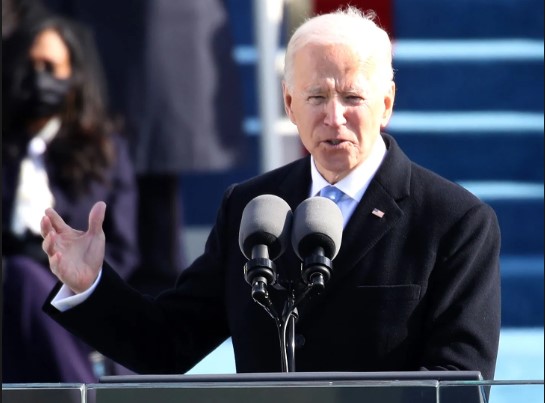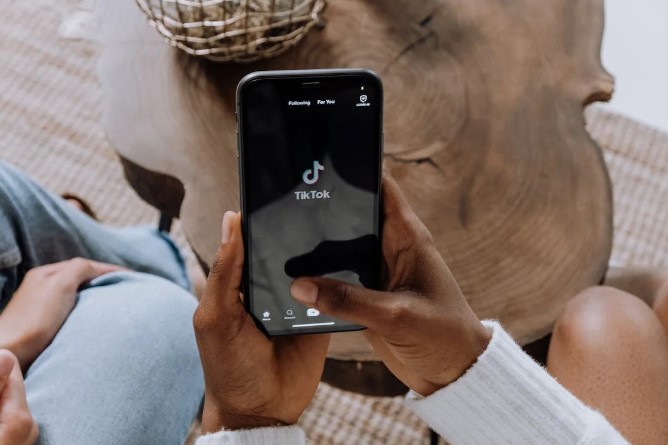Presumptive Republican presidential nominee Donald Trump voiced reservations on Monday regarding the proposed ban on the Chinese-owned social media app TikTok in the U.S., suggesting it could inadvertently bolster Meta’s Facebook platform.
“Without TikTok, you can make Facebook bigger, and I consider Facebook to be an enemy of the people,” Trump, who served as U.S. president from 2017 to 2021, remarked during an interview on CNBC’s “Squawk Box.”
While Trump acknowledged concerns regarding national security and data privacy associated with TikTok, he emphasized the platform’s dual nature: “There’s a lot of good and there’s a lot of bad.”
“TikTok has a considerable following, especially among young users who would feel its absence keenly,” Trump added
TikTok, owned by the Chinese tech titan ByteDance, has witnessed a meteoric rise in popularity in recent years, captivating global audiences with its bite-sized videos.

However, this surge in prominence has also sparked regulatory apprehensions, particularly over fears that the app’s Chinese ownership could entail the sharing of user data upon Beijing’s request.
According to experts, ByteDance, like other Chinese firms, would be legally obliged to comply with such data requests under China’s National Intelligence Law of 2017, which mandates organizations and individuals to assist state intelligence efforts.
In 2020, the Trump administration endeavored, albeit unsuccessfully, to have TikTok removed from U.S. app stores due to these concerns.
Trump subsequently issued an executive order instructing ByteDance to divest TikTok within 90 days. Despite efforts that saw companies like Microsoft expressing interest in acquiring TikTok’s U.S. operations, no viable resolution materialized.
Ongoing concerns persist among U.S. lawmakers regarding TikTok, prompting renewed legislative efforts to address the app’s perceived risks. Separate bills have been proposed, advocating either the divestiture of TikTok by ByteDance or a complete ban.
President Joe Biden, who has echoed national security worries regarding TikTok, has stated his willingness to sign a bill banning the app should Congress approve it.
In contrast, former President Trump has moderated his stance, expressing apprehensions that a TikTok ban could inadvertently strengthen Facebook’s dominance.
During Monday’s interview, Trump reiterated his belief that TikTok poses a national security threat due to its Chinese ownership. However, he also redirected attention towards Facebook, highlighting similar privacy and security concerns on that platform.
“While acknowledging TikTok’s potential as a national security risk given its Chinese ownership, Trump underscored parallel issues with Facebook,” Trump acknowledged.
“If China seeks any information from TikTok, they’ll likely obtain it, posing a national security risk. However, I’m not inclined to boost Facebook’s influence. Banning TikTok could disproportionately benefit Facebook, which I believe has had a detrimental impact on our nation, particularly in the context of elections.”
Addressing Ongoing Concerns Surrounding TikTok
Ongoing concerns persist among U.S. lawmakers regarding TikTok, prompting renewed legislative efforts to address the app’s perceived risks.
Separate bills have been proposed, advocating either the divestiture of TikTok by ByteDance or a complete ban. President Joe Biden, who has echoed national security worries regarding TikTok, has stated his willingness to sign a bill banning the app should Congress approve it.

In contrast, former President Trump has moderated his stance, expressing apprehensions that a TikTok ban could inadvertently strengthen Facebook’s dominance.
During Monday’s interview, Trump reiterated his belief that TikTok poses a national security threat due to its Chinese ownership. However, he also redirected attention towards Facebook, highlighting similar privacy and security concerns on that platform.
“While acknowledging TikTok’s potential as a national security risk given its Chinese ownership, Trump underscored parallel issues with Facebook,” Trump acknowledged.
“If China seeks any information from TikTok, they’ll likely obtain it, posing a national security risk. However, I’m not inclined to boost Facebook’s influence.
Banning TikTok could disproportionately benefit Facebook, which I believe has had a detrimental impact on our nation, particularly in the context of elections.”